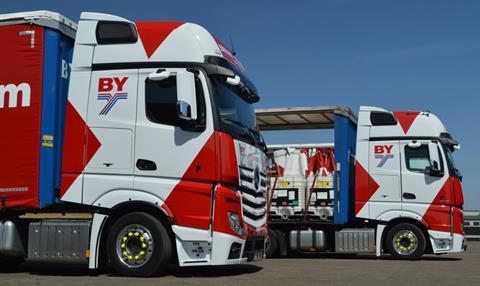
The ports of Liverpool, Heysham and Sheerness could mitigate problems caused by bottlenecks in the Dover Straits following Brexit - despite warnings from hauliers about the considerable re-routing costs.
Their owner, Peel Ports, said each had the capability to limit the impact on trading stemming from the UK’s departure from the EU and play “a vital role in ensuring cargo flows freely through UK ports”.
It explained that moving non-perishable freight unaccompanied is faster and more cost effective than relying on driver-accompanied hauliers and that routing via a port such as London Medway (Sheerness) would be just as efficient as the existing option through the Dover Straits.
Mark Whitworth, Peel Ports CEO, said: “Our industry must address the risks of congestion. About 75% of the trailer freight market between north-west Europe and Britain passed through the pinch point of the Dover Straits.
“The solution we are putting forward is a simple one, which will help maintain smooth trade and also offer increased value to cargo owners.
“Unaccompanied trailers offer more flexibility for longer sea crossings, taking advantage of capacity at ports other than Dover, such as London Medway.”
However, Kevin Hopper, MD at Brian Yeardley Continental (BYC), said it had already moved its 2,500 annual crossings between Dover and Calais to Zeebrugge and Europoort in Rotterdam via the northern ports of Hull, Teesport and Immingham and the cost had been “great and totally unnecessary”.
Read more
- Peel Ports boss looks to capitalise on Felixstowe’s problems
- Switch to unaccompanied freight model to avoid Brexit border delays at Channel Ports, says Peel Ports
- SSD waiver for six months to speed imports in no-deal Brexit
He said: “It has cost BYC thousands of pounds in extra sea freight costs but this cost has been factored into our budget for this year and has been a major part of our thought process when it comes to Brexit.”
Hopper added: “BYC have four Brexit strategies and are as ‘Brexit ready’ as we can be, but due to a lack of clarity by government we still do not know what plan to adopt.
“The whole thing is disgraceful.”
John Lucy, FTA manager of international transport and procedures, said London Medway currently has no ferry services and to convert it into an alternative port for haulage operators would “take time and commitment and a big change in traffic".
He said: “From the truckers’ point of view, to start having to change routes, costs are going to change and earning ability will change.”













